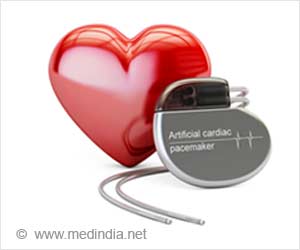Inspire(r) Upper Airway Stimulation (UAS) device developed by researchers can lead to significant improvements for patients with obstructive sleep apnea (OSA).

The multicenter, prospective Stimulation Therapy for Apnea Reduction (STAR) trial was conducted at 22 medical centers in the United States and Europe, and is the first to evaluate the use of upper airway stimulation for sleep apnea.
Treatments for OSA include weight loss, upper airway surgeries, oral appliances, and continuous positive airway pressure (CPAP), which is considered the primary treatment for OSA.
"While CPAP is a successful treatment when used on a regular basis, as many as half of the patients who have been prescribed CPAP are unable to use it regularly, largely due to discomfort with the mask and/or the lack of desire to be tethered to a machine," study's lead author Patrick Strollo, from University of Pittsburgh School of Medicine, said. "The results of this trial show a huge potential for a new and effective treatment that can help millions of patients."
Meanwhile, other researcher said that Inspire UAS therapy differs from other traditional sleep apnea devices and surgical procedures in that it targets the muscle tone of the throat rather than just the anatomy.
Two thirds of patients using the Inspire UAS therapy device had successful control of their OSA although even more reported improvement in snoring, daytime sleepiness and quality of life measures. Eighty-six percent of patients were still using the device every night at the one year mark, which compares very favorably to CPAP.
Advertisement
Source-ANI















